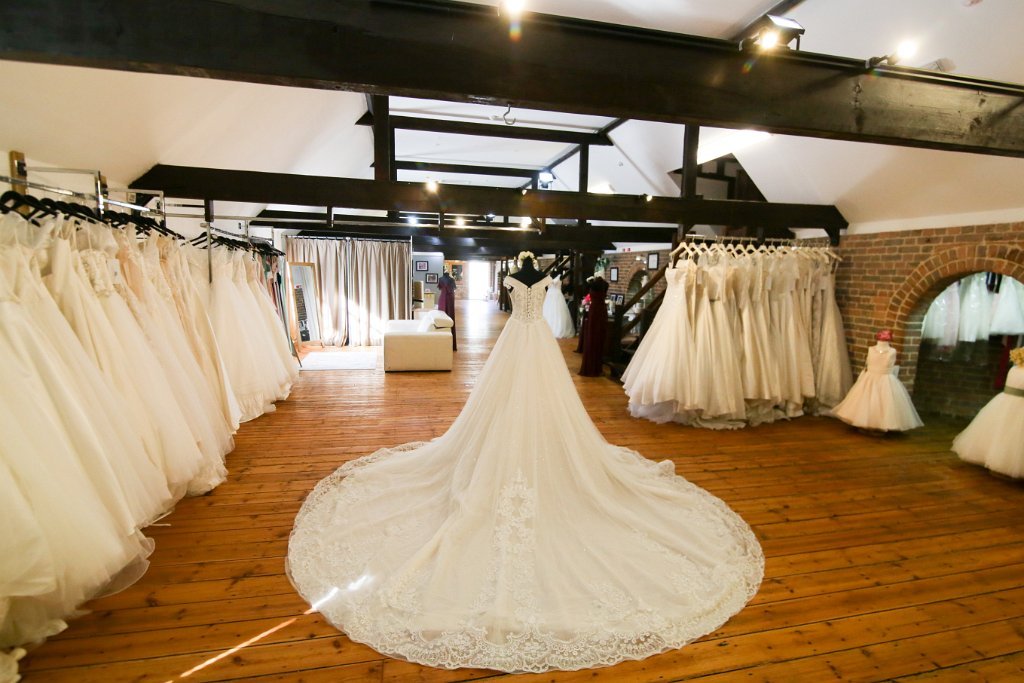As you embark on the exciting journey towards your dream wedding, one thing to keep in mind is that timing is everything. Planning a wedding can be overwhelming, but with the right approach, it can be a lot less stressful, and actually an enjoyable experience! But, when is the perfect time to start wedding planning? How early is too early? And is doing it even an option?
When it comes to wedding planning and the timing of, a lot of it will come down to your personal preferences, budget, and the size of your guest list.
Wedding Photography by Swinky Photography
In this post, we’ll guide you through the ideal, perfect world timeline for planning a wedding. From setting a date to booking suppliers, selecting a venue, and everything in between. By following our expert tips and suggestions, you’ll be ensuring that you have ample time to make informed decisions, secure dream suppliers, and create a celebration that reflects your unique love story.
When to Start Wedding Planning
So, let's dive in and discover when to start wedding planning for a smooth journey to saying 'I Do'!
Why Timing is Important in Wedding Planning
Planning a wedding is a complex task that involves numerous intricate details, and timing plays a crucial role in ensuring that everything falls into place. Starting wedding planning early allows you to have enough time to research, compare options, and make informed decisions without feeling rushed or overwhelmed. It also gives you the advantage of securing preferred suppliers and booking your dream wedding venue before anyone else. As popular venues and vendors tend to get booked up quickly. Venues and photographers, in particular, often have their diaries full years in advance.
Having a clear timeline and schedule for wedding planning will also you help you stay organized, reduce stress, and allow you to enjoy the process of creating the perfect day.
When Should You Start Wedding Planning
There is no one answer to this question, as it depends on multiple factors. But chiefly, you should start planning your wedding according to the date of your big day, in relation to the date you got engaged. For instance, if your wedding date is a year away, the average length of engagement, then you should start planning roughly 2 weeks after your engagement. Whereas if your wedding date is 18 months, to 2 years away, you should give yourself a couple of months to enjoy being engaged before starting the wedding planning process.
Wedding planning is tough, there’s no getting around that. Which is why it’s so important to give yourself some time before beginning the process. It’s not always easy, especially if you have time constraints. But if you don’t give yourself room to fully appreciate living in that ‘I’m engaged’ bubble for a while, you’ll look back and regret it. Celebrate with friends, don’t celebrate with friends, enjoy the moment with your partner, tell your close family – do whatever feels right in the moment and enjoy it.
The Early Stages of Wedding Planning
The early stages of wedding planning are all about laying the foundation for your big day. One of the first steps is setting a budget. Determine how much you're willing to spend on your wedding and allocate funds to different aspects such as venue, catering, attire, and decorations. Doing this will help you make informed decisions and avoid overspending.
Once you have a budget in place, it's time to create a timeline. Decide on a wedding date or a few potential dates, keeping in mind any seasonal or bank holiday considerations. Setting yourself a timeline will help you stay organized and ensure there’s enough time to plan each aspect of your wedding.
Next, it's time to start researching and visiting potential venues. For the majority of couples, this is an exciting part of the planning process, as you get the opportunity to envision how your dream wedding might look.
While visiting venues, pay close attention to their location, capacity, amenities, and price. As these factors will impact greatly the suitability of a venue. Once you have chosen a venue, book it as soon as possible to secure your preferred date. Remember, popular venues can get booked years in advance, so it's essential to act quickly.
During the early stages of wedding planning, it’s also useful to start compiling a list of potential suppliers such as caterers, photographers, florists, and musicians. Contact them to check their availability and ask for quotes. Having a list of preferred, potential suppliers will help you make informed decisions when the time comes to secure their services.
Booking the Wedding Venue and Securing Suppliers
Once you have set a date and selected your wedding venue, it's time to start securing suppliers. Start by booking your top-choices, such as photographers, caterers, and musicians. These suppliers tend to have limited availability, especially during peak wedding season, so it's crucial to secure their services early on. Use the quotes and information you gathered during the research phase to make your final decisions.
If possible, schedule meetings or consultations with suppliers to get a better sense of their style and personality. This is especially important when booking photographers and videographers, as you’ll be placing a lot of trust in these suppliers. Therefore, you need to know you can rely on them.
Don't forget to review contracts with a fine tooth comb and ask questions before signing anything. Once you have booked suppliers, communicate with them regularly to ensure that they’re on the same page and that your vision for the wedding is on track.
At this stage, it's also essential to start thinking about other aspects of your wedding, such as the attire. Begin your search for the perfect wedding dress, suits, and potentially bridesmaids. Keep in mind that alterations and fittings take time, so it's best to start early. Visit bridal boutiques, try on different styles, and consult professionals to find a look that suits your taste and budget.
By starting early, you’ll be allowing yourself enough time to make informed decisions without feeling rushed or stressed.
Choosing the perfect wedding dress and other attire
Choosing the perfect wedding dress is a significant milestone in the wedding planning journey. It's a moment that many brides dream about, and starting early offers the luxury of exploring various styles and options. Begin by researching different bridal boutiques and designers in your area. Look for reviews, visit their websites, and gather inspiration from wedding magazines and blogs.
Once you have a list of potential shops in Kent, or your area, schedule appointments to try on wedding dresses. Take with you a trusted friend or family member to help you make decisions. Remember, it may take multiple visits and fittings before you find the dress of your dreams, so starting early will benefit you in the search for the perfect fit.
In addition to the wedding dress, don't forget about the attire for your partner and the wedding party. Plan a shopping trip or browse online together to find suits or dresses that complement your wedding theme and colour scheme. Coordinate with your bridesmaids or groomsmen to ensure that everyone is on the same page and has enough time to make the necessary appointments and alterations. By starting early, you can avoid any last-minute stress and ensure that everyone looks their best on your big day.
Sending Out Save the Dates and Wedding Invitations
Once you have secured your venue, suppliers, and attire, it's time to let your guests know about your upcoming wedding! Start by sending out save the dates, especially if you're planning a destination wedding or if a lot of your guests will need to make travel arrangements. Include the date, location, and a brief note to express your excitement. Save the dates should be sent out six to eight months in advance to give your guests ample time to plan and make arrangements.
As the wedding day approaches, it's time to send out formal invitations. Include all the necessary details such as the ceremony and reception venues, RSVP information, and any special instructions. Consider adding a personalized touch to your invitations to reflect your wedding theme or style. Make sure to send the invitations at least two to three months before the wedding day to allow your guests enough time to respond.
Wedding Invitation by ByBlossom Stationery
Finalizing Details and Making Last-minute Prep
As your wedding day approaches, it's time to finalize the remaining details and make any last-minute preparations. Schedule meetings or consultations with your suppliers to review timelines, confirm details, and discuss any necessary changes. Make sure to communicate any updates or changes to your venue, caterer, photographer, and other key suppliers.
Additionally, create a detailed wedding-day timeline or schedule to ensure that everything runs smoothly. Include important events such as the ceremony, post-ceremony drinks, and reception, as well as any special moments or surprises you have planned. Provide this timeline to your wedding party, family members, and suppliers so that everyone is aware of the schedule and can coordinate themselves.
Tips for Staying Organized Throughout the Planning Process
Planning a wedding can be stressful, but with the right strategies, you can stay organized and minimize stress throughout the process. Here are some tips to help you along the way:
Create a wedding planning checklist
Break down your wedding planning tasks into smaller, manageable steps. This will help you stay organized and ensure that you don't overlook any essential details.
Utilize wedding planning tools and apps
There are countless wedding planning tools and apps available that can help you stay organized, track your budget, manage guest lists, and more. Take advantage of these resources to simplify your planning process.
Delegate tasks
Don't be afraid to ask for help. Delegate tasks to your partner, family members, and close friends. This will not only lighten your workload but also create opportunities for them to be involved in the planning process.
Take breaks and self-care
Wedding planning can be time-consuming and overwhelming. Take regular breaks to relax, unwind, and take care of yourself. This will help you maintain a healthy balance and prevent a burnout.
Communicate with your partner
Keep your partner involved in the planning process (if they’re not already!) and make decisions together. Effective communication will ensure you're both on the same page and reduce any potential conflicts or misunderstandings.
By following these tips, you can stay organized, reduce stress, and enjoy the process of planning your dream wedding!





